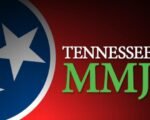A recent IPSOS report has cast a spotlight on the alarming issues plaguing Pakistan’s tobacco industry. The findings reveal a staggering level of tax evasion and illegal trade practices that are causing significant economic repercussions for the country.
The IPSOS report unveils that a shocking 91 cigarette brands are being sold in Pakistan below the government’s set minimum price, resulting in an annual loss of PKR 300 billion to the national treasury. This blatant disregard for the Track and Trace System (TTS) is a clear indicator of the widespread tax evasion within the industry.
Furthermore, the report highlights that these brands are not only sold illegally but also supplied in 25-30-cigarette packets, a practice that continues despite being against the law. The sheer volume of illicit trade, with nearly 2.5 billion cigarette packets sold annually without TTS stickers, underscores the urgency of the situation.

The Smuggling Conundrum
In addition to local tax evasion, the IPSOS report sheds light on the issue of cigarette smuggling. An estimated 74 cigarette brands are smuggled into Pakistan and openly sold across the country, including the Islamabad Capital Territory. This illegal influx of cigarettes not only exacerbates the tax evasion problem but also poses a challenge to local manufacturers and the economy.
The ease with which these smuggled brands penetrate the market reflects the inadequacies of law enforcement agencies in curbing such activities. The report calls for immediate action to equip the Inland Revenue Enforcement Network with the necessary operational facilities to combat this ongoing issue.
A Call for Reform
The findings of the IPSOS report serve as a clarion call for the Government of Pakistan to implement stringent measures against the illegal tobacco trade and tax evasion. The economic damage inflicted by these illicit activities is tantamount to economic warfare against the state.
ACT Alliance Pakistan’s National Convenor, Mubashir Akram, emphasizes the need for tax policies that reflect ground realities and the current enforcement system of the Federal Board of Revenue (FBR). Only through comprehensive reform and enforcement can Pakistan hope to address these alarming issues and safeguard its economic interests.
Maria Garcia is an award-winning author who excels in creating engaging cannabis-centric articles that captivate audiences. Her versatile writing style allows her to cover a wide range of topics within the cannabis space, from advocacy and social justice to product reviews and lifestyle features. Maria’s dedication to promoting education and awareness about cannabis shines through in her thoughtfully curated content that resonates with both seasoned enthusiasts and newcomers alike.








